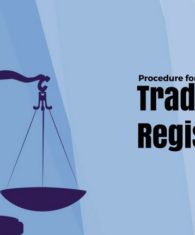ENFORCING TRADEMARKS IN NIGERIA.
Dear Subscriber,
One of the most valuable assets of a business is its brand. The brand could be projected through a product or service which it trades to its customers or clients in return for consideration. Businesses spend a lot of time and money on creating and developing unique products/services which gives then an advantage in the market space however these efforts are often threatened by the antics of imitators and counterfeiters who attempt to cash in on the goodwill of a thriving brand thus reducing the profit expectations of the business. A way of protecting your brand from these attacks is by registering Trademarks.
Trademarking your product name or logo grants you the exclusive right to use such name or logo to the exclusion of every other person. A common question from business owners is that – What happens when someone infringes on my trademark? – Our article this week provides some options available to the Trademark Owner.
Despite the common stories on piracy, many businesses have successfully stopped counterfeiters of their products and detailed below are some of the steps that can be taken to enforce trademarks in Nigeria:
- Court Action- A Trademark Owner has a right to commence infringement proceedings against anyone who uses a similar mark to his registered mark or one nearly resembling it. As part of infringement proceedings, the Trademark Owner may apply to the Court for the grant of a search and seizure order. If granted, the order empowers the Trademark Owner to conduct a raid on the infringer’s premises and seize all infringing goods found. This option is effective as it disrupts the business activities of the infringer and sends a signal that the applicant intends to defend its trademark rights;To succeed in an action for trade mark infringement it is necessary to show that:
- The Defendant has used a mark or sign similar or identical to the registered mark in relation to goods or services for which the mark is registered.
- There is a likelihood of deception or confusion, which may be caused by the use of the two marks by different proprietors.
- Cease-and-Desist Letter– This is a letter written by the trademark owner or a lawyer to the Infringer. The downside of this is that the letter might not be taken serious without a court order backing it. It also has the disadvantage of alerting the infringer of any future enforcement action;
- Media Publication- Advertising Trademark Infringement in the newspapers and other media has proved effective as the message is passed directly to consumers. It also has the advantage of providing information on who the original owners are and how to recognize the genuine product/service.
- Regulatory Enforcement-The Trademark owner may resort to regulatory enforcement of its intellectual property rights. E.g. through National Agency For Food and Drug Administration And Control (NAFDAC) and Standard Organization of Nigeria (SON) who are agencies empowered to enforce quality standards of products manufactured or sold in Nigeria.
CONCLUSION
We deal with trademarks on a daily basis and statistics have shown that consumers purchasing decisions are influenced by trademarks and the reputation such brands represent. It is thus important for any business to fiercely protect its brand which would ultimately help grow the business and ensure its business developments efforts are rewarded.
The content of this document is solely for information purposes only and should not in any way be construed as a legal opinion. If you require specific legal advice on any of the matters covered in this article please contact a professional.
MOTIVATIONAL VIDEO
We understand how tough it is being in business, so the “IOC Weekly” Editorial Team has decided to add inspiring videos to our weekly articles to juice up your week. We hope it serves the purpose.
Cheers,to a fruitful week.


